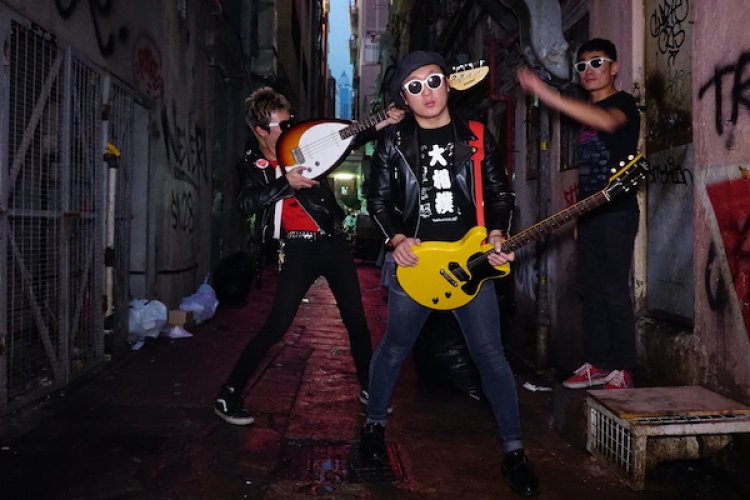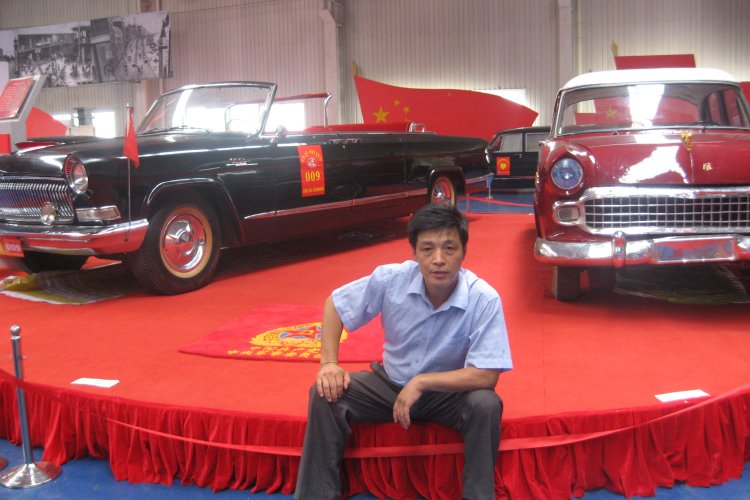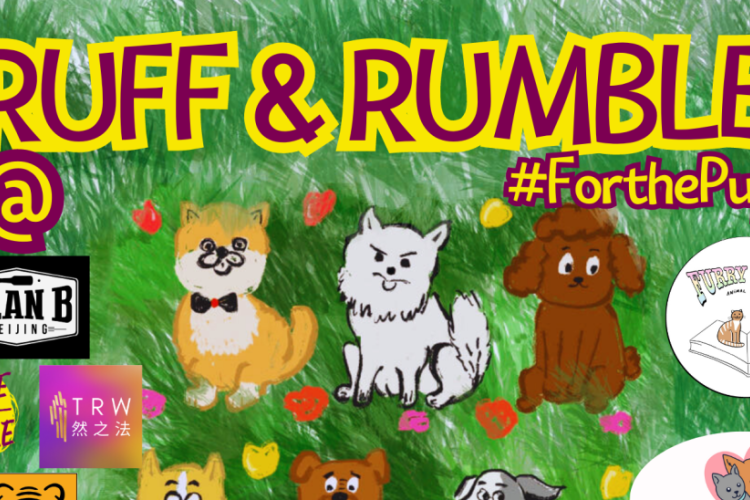Mr. Tea: Gourmand & Tea Tour Guide Joel Shuchat
Montreal native, trained chef and entrepreneur Joel Shuchat has been doing his thing in Beijing since 2004. Aside from his primary business importing and exporting tea, he instructs cooking classes and caters for The Hutong community center and runs tea tours of Maliandao, Beijing’s massive tea market mecca (teatrips.com). Mr. Shuchat sat down with Agenda to demystify the marvels of what is perhaps the world’s most treasured leaf.
Where are you from originally and how did you end up in Beijing?
I came here to eat. I was traveling in Asia looking for food.
I lived on the Jewish side of Montreal, where Chinese food is a bizarre infatuation – as it seems to be across the whole culture. I don’t know why. I’m sure someone has written a thesis on Chinese food in Jewish communities.
I was in a culinary school in Canada, where I had been running electronics distribution companies since I was 18. As I finished the school program I shut my company down and headed straight for Asia on a food discovery/language quest.
I wanted to learn more specifically about Chinese food and language, so I stopped in Beijing.
How did you end up in the tea business, and now, giving tours?
After I had been here for about a year I started to branch into the tea business.
I pretended to be in the tea business at first to get free samples everywhere, and that worked really well. I had a lot of tea and I was discovering all sorts of things – it really does relate to food in all kinds of ways.
Eventually I hooked up with some of my old partners in Canada to do distribution and import/export, dealing in the highest end quality possible that could be accepted abroad. That was five years ago. Even five years in we are still pretty limited in scale.
It’s fun, we are really dealing with the good stuff. By Chinese standards these teas are amazing – even Beijingers rarely get to taste them.
So, over these last few years I’ve gotten to know Maliandao [the tea district] really well – I have friends all over the district, I used to live in the area for a while. There aren’t too many foreigners that have that kind of a base, so the tours were a natural extension of that. That came after my involvement with The Hutong, when I started to meet a few people like myself that had been in the tea business to varying degrees, and it just made sense to put it all together.
What are some of the important ways that tea relates to food?
In a general sense it’s similar to the relationship between wine and food. If you’re into food you’re into wine by extension, even if you don’t know it yet – the same principle applies to tea.
Are there any tea and food pairings that you think are a particularly good match?
I do like having a dark chocolate with a robust green tea. The taste profile for some of these lower quality green teas is a bit strong – they’re not as floral and fragrant, but they have the body of a really nice green tea, such that despite the low cost, they can go really well with chocolate.
There are a lot of teas that I like to pair with nuts. If you want to be safe, drink tea with nuts. Or seeds – Chinese people often drink tea with guazi for a reason.
What are things that people don’t know, and should know, about tea?
One of the areas that our company specializes in is Wuyi Shan, in northwest Fujian. Those are really amazing teas, with a legendary status in China. Most foreigners aren’t too aware of them, people don’t realize that thereare about 800 teas in that region of a few mountains. I could give people about 30 teas from this region to taste and people would see that they are all different, and understand that those are just the beginning.
Oolongs in general are a great category for foreigners, most Chinese people don’t understand them either. It’s just such a broad category – you’re talking about a tea where the processing ranges from almost zero oxidation to fully oxidized, which would be a black tea. Twenty minute variants in the amount of time that the tea master allows the tea to oxidize, as well as variances in temperature, give you entirely different flavors.
On some of the tea tours that we’ve done I’ve made the connection early on that the people are really into oolongs. Then I can spend the whole day giving them different oolongs to taste, giving them teas that are as different as a red wine to a white wine, that are all categorized as oolong.
I can also take people on tours where they are drinking an entirely different type of tea each time, going through the blacks, the greens, the whites, the pu’ers, the real blacks – the post-fermented blacks. To think that they all come from the same tree, that’s impressive to a lot of people.
You could theoretically take a leaf that is usually used for a pu’er and make it into a green tea or an oolong. So although it does indeed have something to do with the plant varietals, they are essentially the same tree.
Are there any restaurants around town you enjoy and think are worth recommending?
I love Zhang Mama, the Sichuan place in my neighborhood. I also like the Xiangxi Banshichu in Jinrong Jie near Taiping Qiao. They have extremely rustic Hunan food. It’s sort of heavy and oily, but very rustic. I also love Bingtuan Dasha, the Xinjiang res-taurant down near Maliandao. I eat there a lot. Another place that I like to go in Maliandao is this really tinyplace called Wuyi Shan Nongjiacai run by a woman and her daughter that does amazing Wuyi Shan [Fujian] homestyle food – smoked bamboo, smoked duck, marinated fish and okra, the ingredients all shipped up every week. It’s fantastic, totally down to earth.
When I go out for a drink a lot of times I often check out Tao Yao Bar on Houhai. Their seasoned fries are great, the management is friendly and they have a really fun drink special on Friday nights. I also like the way it is discreetly distanced from the neon cacophony of most of the other Houhai bars.
Any other exciting project in the works?
Definitely. I am working on a super private and modern courtyard hotel which will open within the next three months in the drum tower area. I can’t be too forward on details just yet, but certain information is starting to gradually show up on the website at www.theorchidbeijing.com.
Maliandao Tea Street 11 Maliandao Lu, Xuanwu District. 马连道,宣武区马连道路11号
The Hutong 1 Jiudaowan Zhongxiang Hutong (southeast of Beixinqiao subway station), Dongcheng District. (159 0104 6127) www.thehutong.com 东城区九道湾中巷胡同1号(北新桥地铁站东南边)
Wuyi Shan Nongjiacai Daily 11am-9pm. Maliandao Hutong (enter from Maliandao Lu and walk about 300m), Guang’anmenwai Dajie, Xuanwu District. 武夷山农家菜, 宣武区广外大街马莲道胡同内(近中联饭店)
Zhang Mama Daily 10am-midnight. 4 Fensiting Hutong, Dongcheng District. 张妈妈特色川味馆, 东城区分司厅胡同4 号
Xiangxi Banshichu Daily 11am-2pm, 5-9.30pm. 10/F, Xiangxi Dasha, 111 Taiping Qiao Dajie, Xicheng District. (6621 4788) 湘西驻京办事处餐厅,西城区太平桥大街111号湘西大厦10层
Bingtuan Dasha Daily 10am-9pm. Bldg 1, Courtyard 6 Maliandao Nanjie (near Carrefour), Xuanwu District. (5836 3888) 兵团大厦,宣武区宣武区马连道 南街6号院1楼(近家乐福)
Tao Yao Bar Daily 1pm-midnight. Beiguanfang Hutong (southwest of Houhai Nanyan, 300m west of Yinding Bridge), Xicheng District. (8322 8585) 桃之夭夭,西城区后海南沿北官房胡同(后海南沿银锭桥西300米)






